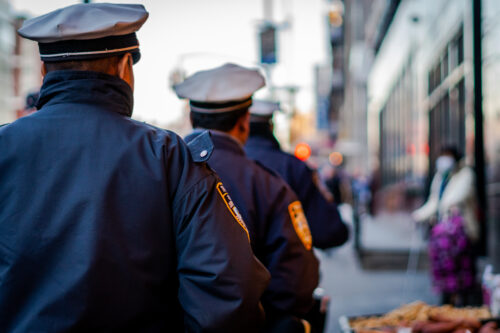
Unfortunately, incidents of police misconduct have been on the rise in recent years, causing great concern across the country. These incidents involving police brutality, harassment, false accusations, and an abuse of power that neglect a person’s rights and civil liberties have become more frequent. As such, it’s crucial to understand how to interact with law enforcement officers to ensure that your rights are not violated. It’s known that police officers wear body cameras that record their actions while on duty and shield them from false claims of misconduct. This causes many people to wonder whether they have the right to record police interactions. If you suspect that you’ve been unfairly charged, arrested, or otherwise had your constitutional rights infringed upon, it is in your best interest to contact an experienced Chesterfield Criminal Defense Lawyer who can defend your rights.
Do I have the right to record police interactions in South Carolina?
In South Carolina, specific laws govern filming or recording police officers. That being said, suspects and bystanders are entitled to record police interactions as long as they’re not interfering with the police officers’ ability to fulfill their duties. Generally, individuals have the right to record officers on duty in public. However, they must record from a certain distance away from the encounter. The First Amendment of the U.S. Constitution permits the recording of police through free speech, free press, and gathering information about the government. Like any other constitutional right, the right to record a police officer has limitations.
Is it illegal to record a police encounter?
Certain limitations exist regarding where and when an individual can record a police encounter. Interfering with an officer or creating a safety hazard is a big red flag. If a suspect or bystander is recording a police officer encounter and they interfere with their duties or cause a safety issue, they can face serious consequences such as being charged with disorderly conduct or obstructing an officer.
Generally, there are privacy concerns, meaning that you will be restricted from recording a police interaction inside a private residence if it violates the privacy of others. Similarly, you will be prohibited from recording at sensitive locations such as schools, hospitals, or courtrooms to protect the rights of others. It’s imperative to note that recording a police officer that is considered harassment or intimidation is illegal. If the recording does not relate to an arrest or possible misconduct, you could be charged with stalking or harassment. In addition, if you are recording on private property, it could lead to trespassing charges.
As you can see, it’s vital to know when you are legally entitled to record a police interaction to ensure you do not face criminal charges. If you’re facing criminal charges, contact a skilled lawyer from the Cockrell Law Firm, P.C., who can help combat your charges and safeguard your rights.